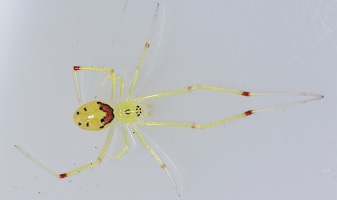
Despite the fact that the iconic happy-face spider belongs to this group, the endemic Hawaiian Theridion spiders have remained largely ignored since their discovery a century ago. We conducted a complete systematic revision of the group that led us to describe eight new species, raising the total number to 16, and infer their relationships based on morphological data. Our study provides the foundations for future investigations aiming at characterising and understanding the processes underlying the patterns and drivers of species diversification and co-occurrence in the archipelago.







